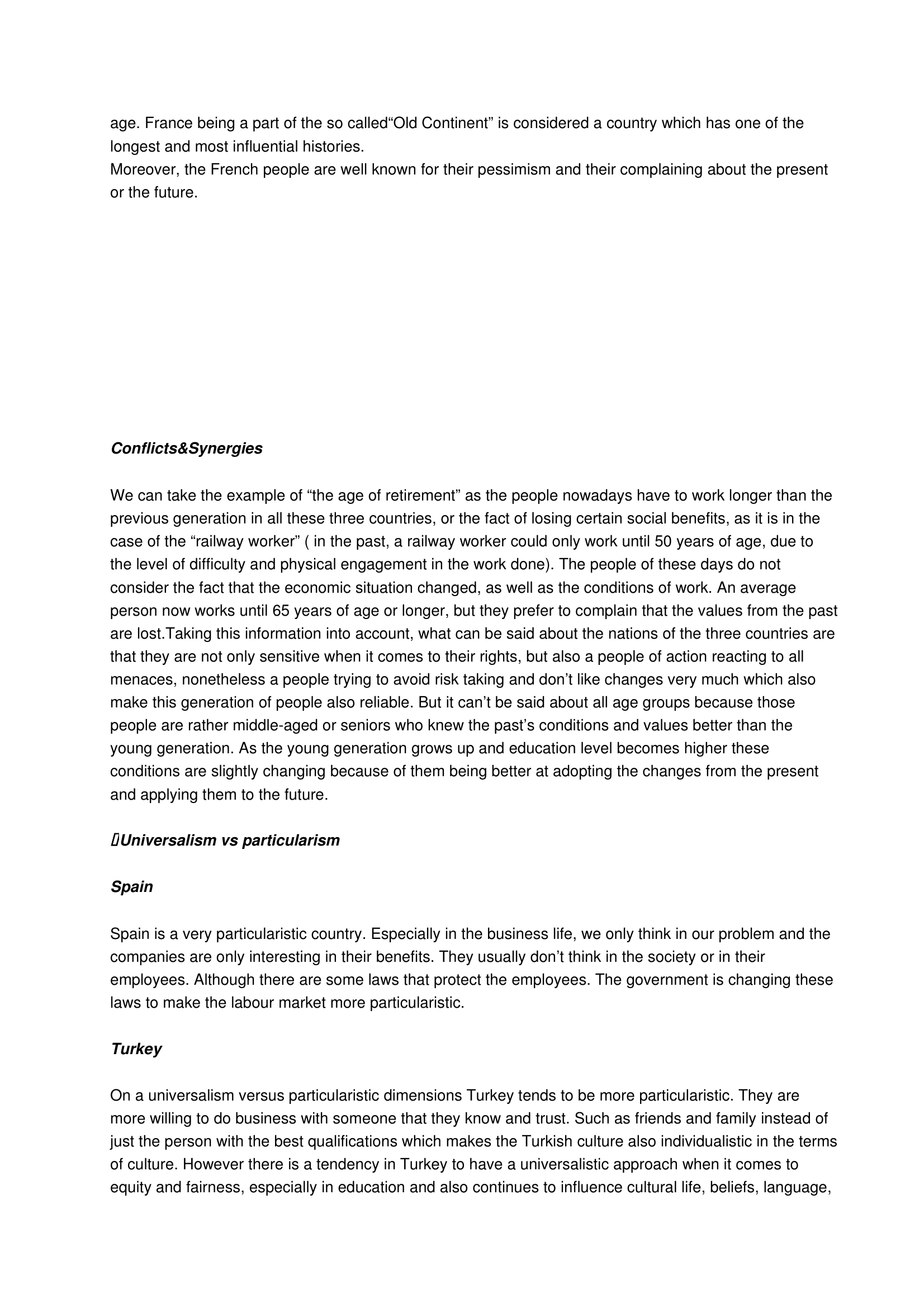Comment faire du commerce en France
Publié le 27/06/2013

Extrait du document
« age. France being a part of the so called“Old Continent” is considered a country which has one of the longest and most influential histories. Moreover, the French people are well known for their pessimism and their complaining about the present or the future. Conflicts&Synergies We can take the example of “the age of retirement” as the people nowadays have to work longer than the previous generation in all these three countries, or the fact of losing certain social benefits, as it is in the case of the “railway worker” ( in the past, a railway worker could only work until 50 years of age, due to the level of difficulty and physical engagement in the work done). The people of these days do not consider the fact that the economic situation changed, as well as the conditions of work. An average person now works until 65 years of age or longer, but they prefer to complain that the values from the past are lost.Taking this information into account, what can be said about the nations of the three countries are that they are not only sensitive when it comes to their rights, but also a people of action reacting to all menaces, nonetheless a people trying to avoid risk taking and don’t like changes very much which also make this generation of people also reliable. But it can’t be said about all age groups because those people are rather middleaged or seniors who knew the past’s conditions and values better than the young generation. As the young generation grows up and education level becomes higher these conditions are slightly changing because of them being better at adopting the changes from the present and applying them to the future. Universalism vs particularism Spain Spain is a very particularistic country. Especially in the business life, we only think in our problem and the companies are only interesting in their benefits. They usually don’t think in the society or in their employees. Although there are some laws that protect the employees. The government is changing these laws to make the labour market more particularistic. Turkey On a u niversalism versus particularistic dimensions Turkey tends to be more particularistic. They are more willing to do business with someone that they know and trust. Such as friends and family instead of just the person with the best qualifications which makes the Turkish culture also individualistic in the terms of culture. However there is a tendency in Turkey to have a universalistic approach when it comes to equity and fairness, especially in education and also continues to influence cultural life, beliefs, language, . »
↓↓↓ APERÇU DU DOCUMENT ↓↓↓
Liens utiles
- Lire des cartes de France Découvrir La carte de France o Faire lire la carte, après avoir fait repérer les éléments indispensables à toute carte (titre, orientation, légende, échelle).
- le commerce extérieur de la france
- Peut-on faire commerce de tout ?
- CORTOT, Jean-Pierre (1787-1843) Sculpteur, il réalise de 1839 à 1841, le fronton du Palais Bourbon, dont le thème est " la France entre la Liberté et l'Ordre public, appelant à elle les Génies du Commerce, de l'Agriculture, de la Paix, de la Guerre et de l'Eloquence ".
- Michel Eyquem de Montaigne par Maurice Merleau-Ponty Collège de France On peut faire de Montaigne quatre ou cinq portraits différents et vrais.

































